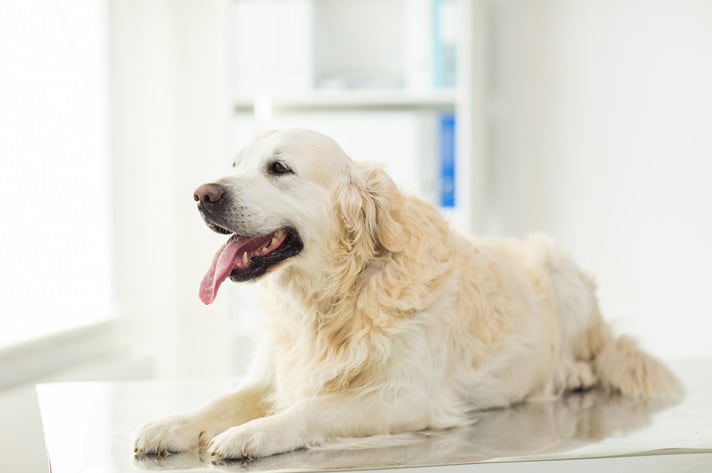Before bringing home your favorite dog breed, you should get to know everything about it—including risks for dog diseases and health problems—so you know exactly what to expect.
Some popular dog breeds, like Labradors Retrievers, are born with hip and elbow problems that need to be monitored as they age. Others, like Bulldogs and Pugs, are susceptible to breathing difficulties and heat stroke. And still others, like the Chihuahuas I’ve adopted over the years, are prone to dental issues. (Let’s just say I’ve become quite good at brushing my dog’s tiny teeth!)
If you’re thinking about getting a purebred dog, talk to your veterinarian about specific health challenges inherent in the breed, says Sarah Nold, DVM, staff veterinarian with pet health insurance provider Trupanion.
Alex Avery, BCsc, a practicing small animal veterinarian in New Zealand, agrees.
“There are many potential health problems that owners need to be aware of, especially in pedigreed dogs,” Dr. Avery says. “Owners need to know what the most common problems are in their chosen breed, and how to spot them when they go to look at the puppies and their parents.”
Here’s a great place to start. Below, we take a look at the most common dog diseases among some of the world’s most popular dog breeds, and we offer tips for spotting and managing them.
Labrador Retrievers

Rosa Jay/Shutterstock.com
A favorite family dog with boundless energy, Labrador Retrievers prone to joint and eye disease, including arthritis, hip dysplasia and progressive retinal atrophy (PRA). They can also inherit muscle weakness and a condition called exercise-induced collapse.
Prevention and Treatment
To assess your dog’s risk of hip dysplasia, joint problems and inherited diseases, ask his breeder if the puppies had X-rays or DNA testing done, Dr. Avery says. Keep your Lab’s joints healthy with diet and exercise—especially with overweight dogs, he adds.
Golden Retrievers

Olena Brodetska/Shutterstock.com
Like Labs, Golden Retrievers can also experience joint and eye disease—but they can also be susceptible to cataracts, ectropion and entropion (eyelid abnormalities), heart disease and cancer.
“Goldens are at risk of otitis, too, which is inflammation or infection of the ear commonly associated with skin allergies,” Dr. Nold says.
Prevention and Treatment
To keep your Golden healthy, watch her weight and keep an eye on her ears, Dr. Nold says.
“Symptoms include scratching at her ears excessively, shaking her head frequently, red ears and/or discharge from the ear,” she says. “Your veterinarian will be able to determine how to best treat otitis by performing an exam and likely an ear cytology.”
If skin allergies are the underlying cause of otitis, lifelong management may be necessary, she adds.
German Shepherd Dogs

Labrador Photo Video/Shutterstock.com
Generally healthy dogs, GSDs can have trouble with bloat, epilepsy, exocrine pancreatic insufficiency that can cause malabsorption, and hip and elbow dysplasia.
“They can also have nerve problems and immune system problems,” Dr. Avery notes.
Prevention and Treatment
Bloat is a life-threatening condition that occurs in deep-chested breeds like German Shepherds. It can cause the dog’s abdomen to swell. (Learn about the symptoms of bloat and what to do if bloat happens in your dog.)
Bulldogs, French Bulldogs and Pugs

Grigorita Ko/Shutterstock.com
Brachycephalic, or “short-headed” breeds, like Bulldogs, French Bulldogs and Pugs, have their hallmark shortened muzzle—but that gives them their own set of health challenges, including breathing problems caused by an elongated soft palate, malformed nostrils and an obstructed windpipe, Dr. Avery says.
“They’re also prone to heat stroke,” he says.
Prevention and Treatment
To ease these breeds’ breathing challenges, avoid too much activity and overheating, particularly on warm days, Dr. Avery says.
Yorkshire Terriers

Birute Vijeikiene/Shutterstock.com
Small breeds, including Yorkies, Chihuahuas and Pugs, can have trouble with a disease called Legg-Calve-Perthes disease, which can lead to disintegration of the hip joint, and bone and joint inflammation. Yorkies also can develop luxating patellas (loose kneecaps), dental problems and hypoglycemia.
Prevention and Treatment
To treat your pup’s joint inflammation and lameness, your veterinarian can prescribe pain killers and an exercise program. Weight management can help, too, says Dr. Nold.
Chihuahuas

art nick/Shutterstock.com
Small but mighty, Chihuahua health problems range from a collapsed trachea, heart problems and hypoglycemia to eye disease and luxating patellas. Their tiny mouths can also hide dental problems, says Dr. Avery.
Prevention and Treatment
Congenital issues, like collapsed trachea and heart problems, should be monitored by your veterinarian, says Dr. Avery. Your pet may need to be prescribed a heart medication.
But regular exercise, a nourishing diet and regular tooth-brushing can keep other issues at bay, he says.
Cross-Breed Diseases
Though specific breeds are prone to certain dog diseases, just about every type of dog is at risk for these health problems, says Dr. Nold
Vomiting and Diarrhea
They have many different underlying causes, including an abrupt change in diet, internal parasites, viruses, toxins or inflammatory bowel disease.
“Because there are so many causes for vomiting and diarrhea, often your veterinarian will use diagnostics such as a fecal test, blood work, X-rays and/or ultrasound to help determine the best course of treatment,” Dr. Nold says. “Your dog can quickly become dehydrated if vomiting and diarrhea are severe.”
Masses or Lumps
If your pal develops a mass or lump, your veterinarian will take a sample and test it to determine what it is, Dr. Nold says.
“Redness or discharge could indicate an infection,” she says. “If a mass is growing quickly, appears red or has discharge, it should be evaluated as soon as possible by a veterinarian.”
Conjunctivitis
Inflammation or infection of the eye’s conjunctiva can be caused by many things, says Dr. Nold, including allergies or infections caused by a virus, bacteria or parasite.
“Symptoms of conjunctivitis may include squinting, redness and/or discharge from the eye, and one or both eyes may be affected,” she says. “Sometimes your dog may also want to rub at his face/eyes, which can cause a scratch on the cornea and if this occurs more aggressive treatment may be necessary.”
Eating Something They Shouldn’t
Regardless of the breed, dogs—usually young dogs—will often eat something they shouldn’t. Most times, it passes; sometimes, it doesn’t, and it can cause a lot of problems, Dr. Nold says.
“A blockage of the GI tract can be life threatening if not addressed promptly,” she says. “Your veterinarian may use X-rays and/or ultrasound to assess whether an obstruction is present. Often surgery is required to remove the foreign body if an obstruction is present. Symptoms of an obstruction may include vomiting and/or decreased to absent appetite.”
By: Wendy Bedwell-Wilson
Featured Image: Chewy Studios
Share:









